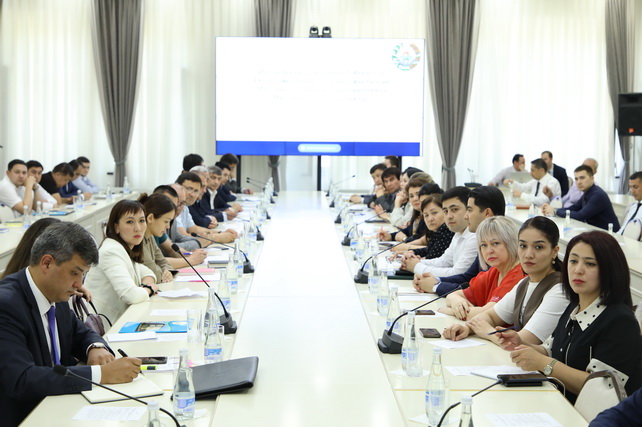
Draft National Human Rights Strategy to 2030 discussed in Uzbekistan
Draft National Human Rights Strategy to 2030 discussed in Uzbekistan
Tashkent, Uzbekistan (UzDaily.com) — On 30 April, a national consultative meeting was held in Tashkent to discuss the draft National Human Rights Strategy of the Republic of Uzbekistan through 2030.
The strategy has been developed as part of the implementation of the Presidential Decree dated 30 January 2025 “On the State Programme for the Implementation of the Uzbekistan 2030 Strategy” in the Year of Environmental Protection and the Green Economy.
The consultations were organized by the lead project implementer — the National Center of the Republic of Uzbekistan for Human Rights. The meeting brought together over 50 participants, including representatives from ministries and agencies, national human rights institutions, civil society organizations, academic institutions, and members of the Public Council under the National Center.
Opening the meeting, Akmal Saidov, Director of the National Human Rights Center, stressed the importance of adopting a National Strategy as a key instrument for the systemic and effective protection of human rights in Uzbekistan. He recalled the 1993 World Conference on Human Rights in Vienna, where countries were encouraged to consider adopting national human rights action plans or strategies.
To date, more than 80 countries have adopted national human rights strategies or action plans, including Australia, the United Kingdom, Denmark, Sweden, Spain, Italy, Norway, China, Japan, Georgia, Latvia, Kazakhstan, Tajikistan, Türkiye, Indonesia, Mexico, and others.
Uzbekistan also has positive experience in this area. As noted by Saidov, the country’s first National Human Rights Strategy, adopted in 2020, was successfully implemented and significantly contributed to strengthening human rights guarantees.
The development of the new strategy through 2030 is included in the State Programme for 2025 and marks an important step in shaping Uzbekistan’s long-term human rights policy. The document outlines priority areas for state action in the field of human rights and freedoms, aiming to raise human dignity, quality of life, and citizen well-being.
The draft strategy highlights the role of the individual as the highest value. It emphasizes that ensuring rights and freedoms and improving people’s lives are essential to sustainable development. In this regard, the strategy lays the foundation for a consistent state policy focused on strengthening human rights mechanisms.
The draft National Strategy consists of six key areas:
Protection of civil and political rights;
Protection of economic, social, cultural, and environmental rights and support for sustainable development;
Safeguarding the rights of vulnerable and socially disadvantaged groups;
Enhancing the performance of national human rights institutions and civil society organizations;
Improving human rights education;
Developing international cooperation in the field of human rights.
Over 200 proposals from government bodies and NGOs were collected during the drafting process.
To ensure transparency and public engagement, the draft was made available for public discussion on the official portal for regulatory document review and on the website of the National Center for Human Rights of Uzbekistan.
During the national consultations, participants shared their views and suggestions on the draft, and it was agreed that the project would be further refined based on the feedback received.